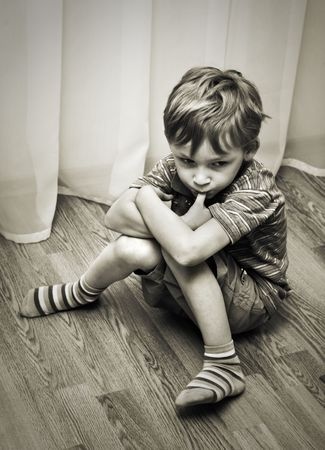Michigan ranks in bottom half of state nationally in care for homeless children
Nearly 80,000 Michigan children were homeless in 2013, according to a national report on homeless children and families. The report ranks Michigan 37th of 50 states (with 50 the worst) in a composite index that includes the number of homeless children, the health of children in poverty, how poor children fare in school and state policy and planning to deal with the problem.
The report notes that homeless children are more likely to be sick, have trouble in school and experience mental health problems. According to the report, by the nonprofit Massachusetts-based National Center on Family Homelessness, up to 25 percent of homeless pre-school children have mental health problems requiring clinical evaluation. That number rises to 40 percent among homeless school-age children.
The report notes that poverty is closely connected to homelessness. It found that 15 percent of Michigan children below the poverty line. have one or more chronic health condition, 15 percent have asthma and 14 percent are diagnosed with Attention Deficit Hyperactivity Disorder.
Among Michigan children from poor households, just 19 percent of fourth graders were judged proficient in reading and 20 percent in math in the National Assessment of Educational Progress test. That compares to 31 percent proficiency among all fourth graders in reading and 37 percent in math.
The report listed several major causes of homelessness among children, including high poverty rates, lack of affordable housing, the ongoing impact of the Great Recession and racial disparities.
It found that 22 percent of Michigan households pay more than 50 percent of their income for rent, a level that often leaves households unable to meet other expenses. A sudden crisis – loss of a job, a medical emergency – can push such households from renters to the ranks of the homeless.
Michigan is ranked 30th in affordable housing among U.S. States, according to the National Low Income Housing Coalition. The group calculated it would take a full-time hourly wage of $14.77 to afford the state’s “fair market rent” of a two-bedroom apartment, pegged at $768 per month.
“You are one crisis away from falling into homelessness,” said Carmela DeCandia, director of the National Center on Family Homelessness.
Michigan ranked 28th among 50 states for policy and planning related to homeless children and families. DeCandia said that's in part because Michigan lacks a state Interagency Council on Homelessness to coordinate initiatives among state departments and in communities across the state. A bill introduced in September to create such an agency is in the state House Oversight Committee.
Bob Wheaton, spokesman for the Michigan Department of Human Services, said the state has had a similar agency since 2006 that provides coordination among several state departments. The bill would expand its imprint to include all relevant state departments.
Wheaton added that DHS has a variety of programs aimed at reducing family homelessness.
“We know it is a problem,” Wheaton said.
He cited a program that places caseworkers in schools in high-poverty areas, tasked with working with at-risk families. It began in Detroit, Flint, Pontiac and Saginaw but has since been expanded to approximately a dozen counties. Wheaton said the state also funds 41 shelters for victims of domestic violence and their families, in addition to programs that provide emergency rent and heating payment assistance.
See what new members are saying about why they donated to Bridge Michigan:
- “In order for this information to be accurate and unbiased it must be underwritten by its readers, not by special interests.” - Larry S.
- “Not many other media sources report on the topics Bridge does.” - Susan B.
- “Your journalism is outstanding and rare these days.” - Mark S.
If you want to ensure the future of nonpartisan, nonprofit Michigan journalism, please become a member today. You, too, will be asked why you donated and maybe we'll feature your quote next time!


 Homeless children are more likely to be sick, experience mental health problems and have difficulty in school.
Homeless children are more likely to be sick, experience mental health problems and have difficulty in school.